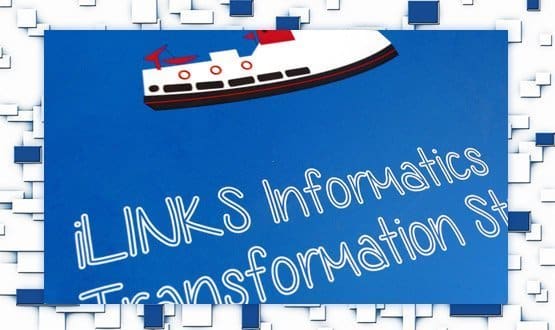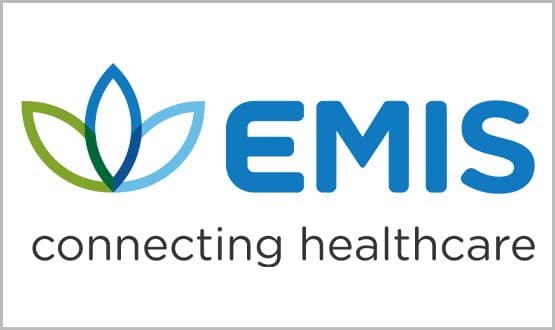How do you do IT?
- 14 July 2014

A new way of sharing data will soon arrive in North Mersey. After spending more than a decade improving access to patient information across care settings, the region has launched an ambitious informatics strategy that aims to share data across a much wider range of health and social care professionals.
With 26 different stakeholders involved in the iLinks Transformation Programme, it is truly a large-scale project; but as Kate Warriner, deputy director at Informatics Merseyside, says: “We need to be ambitious.”
Liverpool’s mayor wants change
North Mersey is recognised as a leader in sharing information. Over the past six years or so, it has been giving a steadily widening pool of clinicians access to patient information based on GP records, using Emis Web and the Medical Interoperability Gateway as its key technologies.
However, times have changed. Liverpool City Council asked Professor Sir Ian Gilmore to run a Health Commission to “find ways to improve health and wellbeing and to find innovative ways to do this.”
In January, the commission reported and concluded that “minor modifications” to existing services would not be enough to meet the challenges the city faces. Instead, it argued, a formal, integrated health and social care system is needed, that “puts prevention at its heart” and aims to be a “national exemplar” for joining up out-of-hours services.
IT will be needed to support this call for integrated care focused on 18 neighbourhoods, and the iLinks Transformation Programme is being established to link up health and social care, including ambulance services and fire services.
Warriner and her team explained at the recent iLinks conference that they want to build on the work they have done – because starting from scratch would put them “years behind”. But they also want to create a quite different sharing model.
“Some of the processes we put in place were right at the time; but now it’s about looking at a different type of sharing model that is much more sustainable,” she tells EHI at the event.
Dr Simon Bowers, a GP and clinical vice-lead for NHS Liverpool Clinical Commissioning Group, points out that North Mersey is “ahead of the game in many ways.”
“We have shared 1m records since 2008. Over the last 12 months we’ve been busy getting ‘our ducks in a row’ and doing a consultation. We have universal approval.”
Working with social care
Indeed, many stakeholders want to go faster. “The reality is we shouldn’t have to wait so long for integration across health and social care,” says deputy mayor of Liverpool, Roz Gladden. “We have got to leave our egos at the door.
“Nobody who receives care from us should know – based on the quality of care and the care given – whether it’s from social care, hospital or GPs. A lot of us should be sharing information about the patient so there care is absolutely seamless.”
Individual organisations already have projects in place. At Liverpool City Council, Jonny Kelville, service manager, governance and intelligence, and his team are working with Royal Liverpool and Broadgreen University Hospital NHS Trust on providing an integrated view of the patient.
This means that if a patient goes into A&E or into hospital for a procedure, social workers can avoid unnecessary home visits and help their acute colleagues to get a discharge plan in place.
“It means having a better understanding of the other areas of care going into the individual. For adult social care, having more data on admissions and A&E from residential homes gives us a better view of the care they are getting,” says Kelville.
The council has also procured a new social care system from Liquidlogic, which has more capacity for integration than its current, legacy system. “There’s a whole lot of work with social care on its own that is also being plugged into iLinks,” adds Kelville.
Pulling in patients
On the health side, Dr Bowers says that every time one of the local CCGs commissions something from now on, it will make sure that the shared record project can support it.
“We want to get a single, simplified scale of sharing for North Merseyside that’s safe and legal and signed of at the very highest level,” he says. “The iLinks goal is that if you are in a frontline profession, and you need to deliver services to the public, we will give you the information you need.”
Dr Bowers adds that in three years’ time he hopes to see technology in us by patients as well; pointing out that it should be relatively simple to remind them to take medications, that they have a GP appointment or similar. “Why don’t we use text messaging and reminders to tell patients ‘today’s the day you poo in a cup?’” he asks.
A vision for seamless access
The details of how this vision for information sharing will be delivered are yet to be determined; but Dr Bowers says a portal approach is unlikely. “Buying something that sits on top of everything is a nightmare and a long procurement process,” he argues.
Dr Rob Caudwell, chair of Southport and Formby CCG, launched the new strategy by saying: “The way we’re planning to deliver it is through an information exchange. A health and social care record centred around the patient.”
The Liverpool region has 90% coverage of the NHS Number, which is and will be used as the primary identifier for the new system. Staff will get role-based access, customised to different views of the records, depending on their role.
“To clinicians it’s going to look like their own system,” Dr Caudwell says. “The information will come into the clinical system they are already confident with. They don’t need to know where the information is coming from; it will just be there.”
Thinking about the information governance
The programme board recently had its first information governance group meeting, which was well attended by clinicians. Dr Craig Gradden, medical director at Liverpool Community Health NHS Trust, says they cannot afford to get the information governance wrong.
“The information governance something we need to tackle and we need to look at it as an enabler. At the meeting, we didn’t agree on all the details but we all agreed on the principles.
“It’s about making sure we listen to issues in the past and the concerns people have,” he says; adding that the project will also need to consider how to give patients access to their own records and online services.
“The patient owns their own record. There are places where people have [given patients online access to their records], but there’s anxiousness around that. We need to make sure people are comfortable with it. People get nervous and we got to listen to what these issues are.”
Taking the next step
So, what next? Warriner explains that there won’t be any “big bang”, but rather an incremental approach. The next step is to figure out “what we want to share – and what we need to share – and then focus on the technology and how we are going to do that.”
Visibly enthusiastic about moving forward with the project, she adds: “We are asking the different providers what they need. We will have a number of working groups. It is really exciting to see what we’ve worked on so hard over the last few years take the next step on the journey.”
The stakeholders involved in the programme are:
Aintree University Hospital NHS Foundation Trust; Alder Hey Children’s NHS Foundation Trust; The Clatterbridge Cancer Centre NHS Foundation Trust, Informatics Merseyside, Liverpool Community Health NHS Trust, Liverpool City Council, Liverpool CCG; Liverpool Clinical Laboratories; Liverpool Health Partners; Liverpool Heart and Chest Hospital NHS Foundation Trust; Liverpool Women’s NHS Foundation Trust; Local Medical Committees ; Mersey Care NHS Trust; Merseyside Fire Service; Merseyside Police; Worth West Ambulance Service NHS Foundation Trust; North West Coast Academic Health Science Network; Public Health England; Sefton Council, Southport and Ormskirk Hospital NHS Trust; South Sefton CCG; Southport and Formby CCG; Royal Liverpool and Broadgreen University Hospital NHS Trust; The Walton Centre; and Urgent Care 24.




